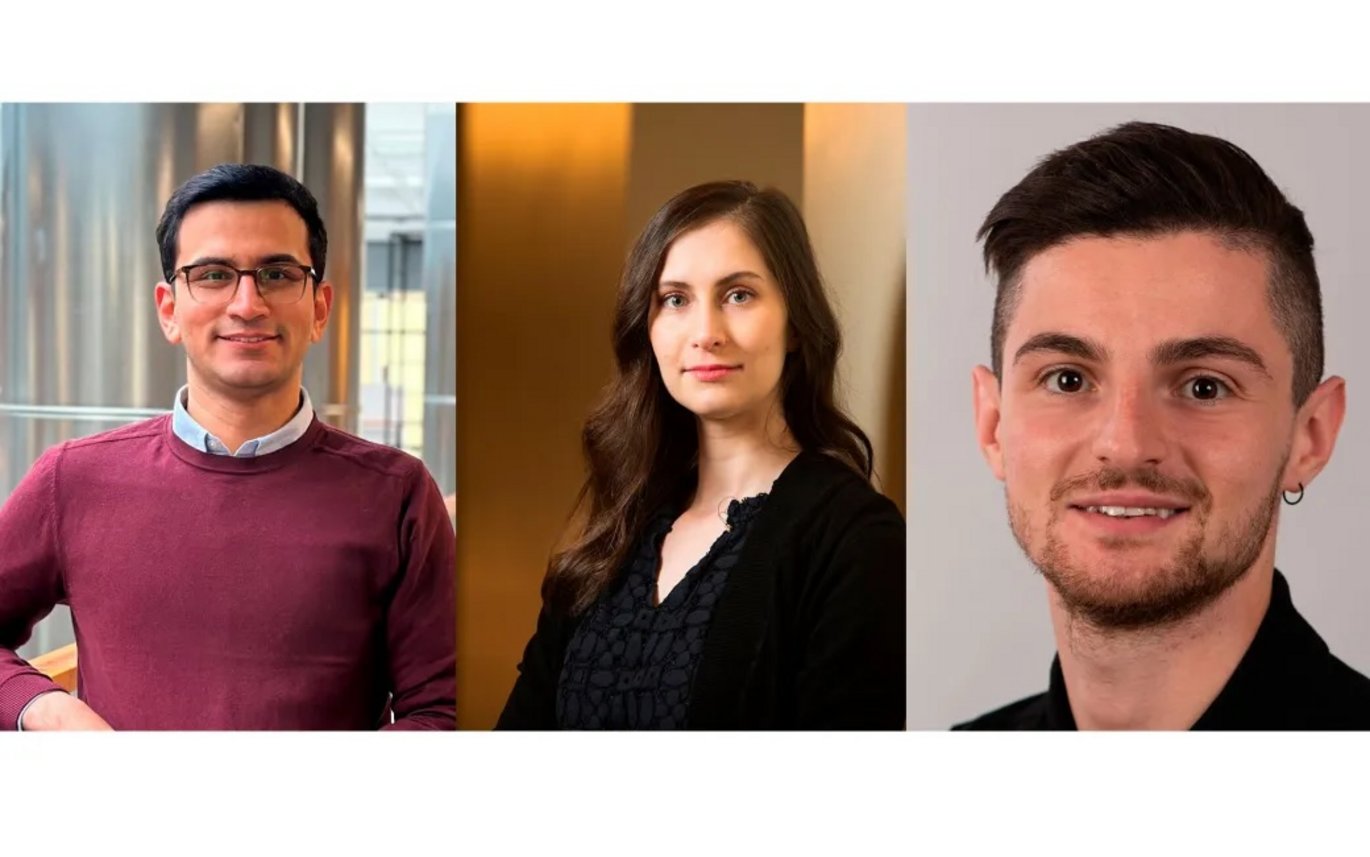Three new Group Leaders to join FIMM in 2024
We are very happy to announce that the three top candidates for the FIMM-EMBL Group Leader positions have all accepted the offer to join FIMM. Please welcome Nina Mars, Arafath (Rafa) Najumudeen and Simone Rubinacci!

Article originally published on FIMM website: https://www.helsinki.fi/en/hilife-helsinki-institute-life-science/news/three-new-group-leaders-join-fimm-2024
The recruitment for new FIMM-EMBL group leaders started last summer. Following the EMBL model, these group leader positions come with an initial 5-year appointment and the opportunity for a 4-year extension. The selected group leaders are expected to initiate a new independent research program in one of FIMM’s research fields.
More than 60 applications were received, 52 of which were eligible and evaluated by the international selection panel. The evaluation panel was chaired by Professor Janna Saarela from the Centre for Molecular Medicine Norway (NCMM), with Carl-Henrik Heldin, Helen Parkinson, Oliver Billker and Elisabeth Widén as the panel members.
In total, nine candidates were invited for a site visit and an interview in November 2023. After presentations and interviews of the candidates, the selection panel concluded that the scientific ambition and output of the applicants were exceptionally high and the competition between the leading candidates tough. In its final ranking, the panel focused on scientific excellence of the project and the candidate. Following the EMBL model, preference was given to the early-stage candidates ready to launch their first own research group.
“The EMBL model provides unique opportunities for the most talented early-stage researchers to start their first research group. All three new FIMM-EMBL Group Leaders come with exceptionally successful postdoc periods and highly innovative research plans for the next few years. This new cohort will provide solid basis for renewal and continued success for FIMM”, says FIMM Director Samuli Ripatti.
The appointments were approved by the HiLIFE Board on February 1 and the new group leaders will start later during the spring or in early autumn.
Nina Mars, MD, PhD
Combining her expertise in clinical medicine, statistics and genomics, Dr. Mars’s research focuses on questions needed for integration of genomics into clinical practice in common diseases. She received her MD and PhD degrees from the University of Helsinki and held her initial postdoctoral role at FIMM. She recently returned from Broad Institute of MIT and Harvard to hold an Academy Research Fellowship. Bridging the gap between genetic research and clinical application to enhance patient care, her research utilizes vast biobank resources, aiming to address clinical challenges in disease risk prediction, combining germline genomics to other omics data. With a focus on cancer and immune-mediated diseases, the research in her upcoming group also moves beyond studying germline genetic factors affecting disease onset, to studying germline influences on characteristics and prognosis of common diseases. Nina is excited to take on the role of a FIMM group leader, with the environment within the institute bringing diverse opportunities for translational research integrating omics and clinical medicine.
Nina will start her FIMM-EMBL group leader position in March 2024.
Arafath (Rafa) Najumudeen, PhD
Arafath (Rafa) Najumudeen has background in cell and cancer biology. He received his PhD from Åbo Akademi University in 2016. During his postdoctoral work at CRUK Scotland Institute (UK), Rafa expanded his studies into metabolism, specifically delving into the metabolic rewiring of cancer cells. Employing innovative spatial metabolomic imaging techniques and preclinical mouse models, he explored the functional significance of nutrient acquisition in the process of cancer formation. In 2022, Rafa returned to Finland as an Academy Research Fellow at the Institute of Biotechnology. His group investigates the fundamental role of nutrient absorption and exchange in cellular and organismal physiology with a particular emphasis on stem cells, tissue regeneration and cancer at both cellular and spatial resolutions. The team develops and utilizes novel preclinical mouse models, spatial-omics approaches and organoid models to spatially resolve cellular metabolism in health and disease, and uses these approaches for potential development of therapeutics. Rafa is excited to start integrating the unique large-scale human genetics datasets at FIMM with his expertise on preclinical models to advance precision cancer medicine and ultimately, understanding of disease physiology.
Rafa will start his FIMM-EMBL group leader position in September 2024.
Simone Rubinacci, PhD
Simone Rubinacci’s background in statistical and population genetics drives his passion for developing methods to analyze large genetics datasets. During his PhD studies at the University of Oxford and his first postdoctoral role at the University of Lausanne, he focused on advancing haplotype phasing and genotype imputation methods. Currently, as a postdoctoral fellow in statistical genetics at Brigham and Women's Hospital (Harvard Medical School) and the Broad Institute of MIT and Harvard, he is developing new haplotype-based techniques to identify structural variants in biobanks and understand their impact on complex traits. Simone is excited to join FIMM due to our institute’s pioneering role in genetic data generation. He aims to deepen the understanding of complex genetic traits, emphasizing structural variations and detailed haplotype analysis within the Finnish population. These research directions could unveil novel disease mechanisms, offering transformative insights into medical treatments. Moreover, effectively utilizing large-scale data can significantly enhance the cost-effectiveness and accessibility of genetic information for diverse human populations.
Simone will start his FIMM-EMBL group leader position in September 2024.